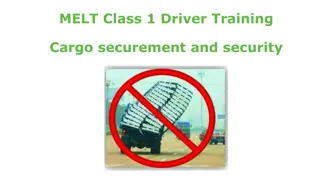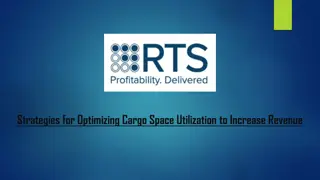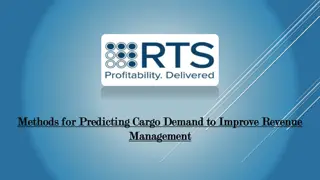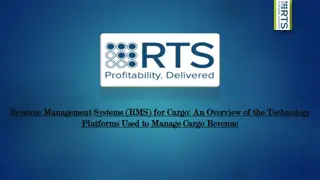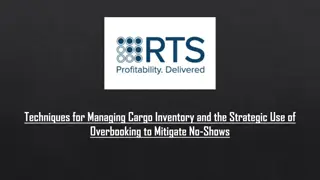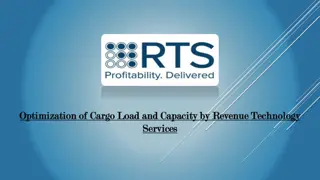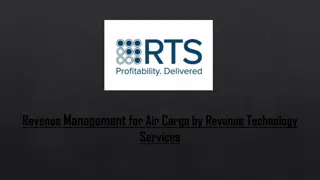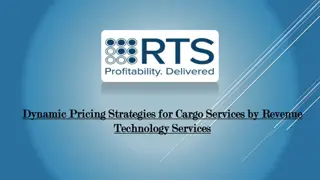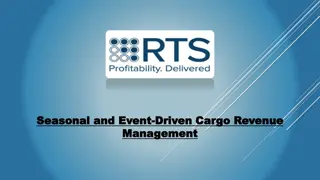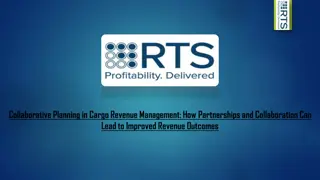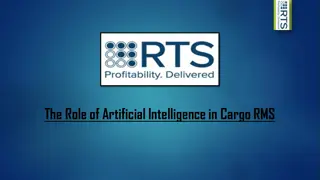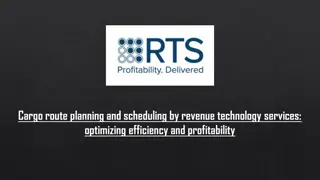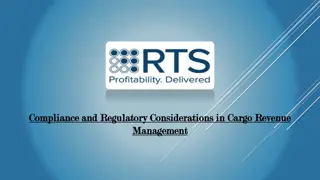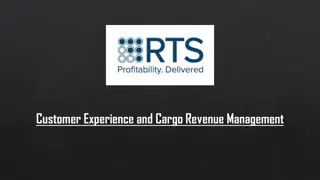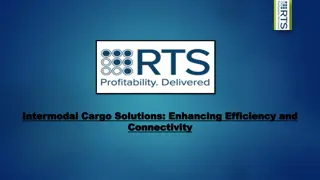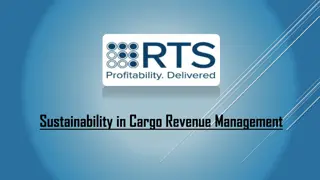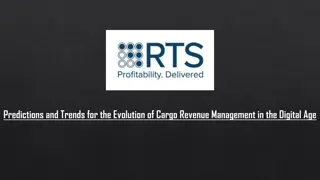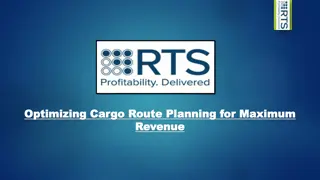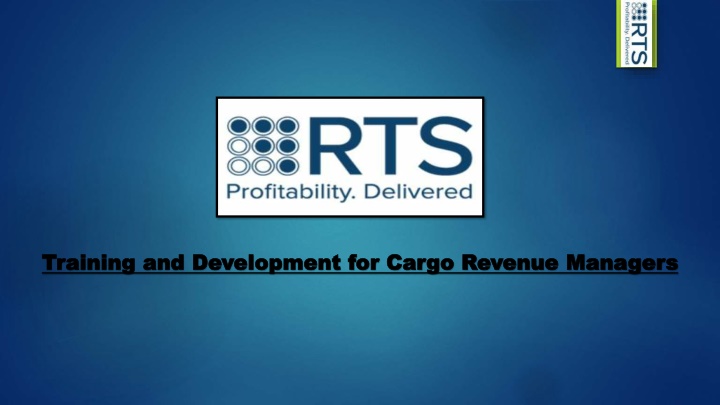
Training and Development for Cargo Revenue Managers
In today's fast-paced and ever-evolving business environment, the role of a cargo revenue manager is more critical than ever. The field of cargo revenue management is a dynamic and complex area that requires professionals to stay updated with the latest industry trends, technologies, and strategies. At Revenue Technology Services, we understand that continuous learning and skill development are essential for cargo revenue managers to excel in their roles and drive business success.n
Download Presentation

Please find below an Image/Link to download the presentation.
The content on the website is provided AS IS for your information and personal use only. It may not be sold, licensed, or shared on other websites without obtaining consent from the author. If you encounter any issues during the download, it is possible that the publisher has removed the file from their server.
You are allowed to download the files provided on this website for personal or commercial use, subject to the condition that they are used lawfully. All files are the property of their respective owners.
The content on the website is provided AS IS for your information and personal use only. It may not be sold, licensed, or shared on other websites without obtaining consent from the author.
E N D
Presentation Transcript
Training and Development for Cargo Revenue Managers Training and Development for Cargo Revenue Managers
In today's fast-paced and ever-evolving business environment, the role of a cargo revenue manager is more critical than ever. The field of cargo revenue management is a dynamic and complex area that requires professionals to stay updated with the latest industry trends, technologies, and strategies. At Revenue Technology Services, we understand that continuous learning and skill development are essential for cargo revenue managers to excel in their roles and drive business success.
Cargo revenue management involves optimizing the revenue generated from cargo operations. This includes forecasting demand, setting prices, managing capacity, and analyzing market trends. Given the intricacies of these tasks, cargo revenue managers must possess a diverse skill set that combines analytical prowess with strategic thinking. However, the rapid advancements in technology and changes in market dynamics necessitate ongoing training and development to keep these skills sharp and relevant. One of the primary reasons continuous learning is vital in cargo revenue management is the constant evolution of technology. Advanced data analytics, machine learning, and artificial intelligence are transforming how cargo revenue managers make decisions. For instance, sophisticated algorithms can now predict demand more accurately, optimize pricing in real-time, and enhance capacity management. To leverage these technological advancements effectively, cargo revenue managers must be proficient in using these tools and interpreting the results they produce.
Moreover, the global nature of the cargo industry means that market conditions can vary significantly across different regions. Cargo revenue managers must be adept at understanding and responding to these variations. Continuous learning enables them to stay informed about global market trends, regulatory changes, and competitive dynamics. This knowledge allows them to make informed decisions that maximize revenue and ensure compliance with international regulations. Another critical aspect of cargo revenue management is strategic planning. Cargo revenue managers must develop and implement strategies that align with their company's overall business objectives. This requires a deep understanding of market conditions, customer needs, and competitive pressures. Continuous learning helps managers refine their strategic thinking skills and stay ahead of industry trends, ensuring their strategies remain effective and relevant. Training and development programs offered by organizations like Revenue Technology Services play a crucial role in fostering continuous learning among cargo revenue managers. These programs provide access to the latest industry insights, best practices, and cutting-edge tools. They also offer opportunities for managers to network with peers, share experiences, and learn from each other. By investing in such programs, companies can ensure that their cargo revenue managers are well- equipped to navigate the complexities of the industry and drive sustainable growth.
In conclusion, the importance of continuous learning and skill development in cargo revenue management cannot be overstated. As the industry continues to evolve, cargo revenue managers must stay abreast of technological advancements, market trends, and strategic best practices. Through ongoing training and development, they can enhance their capabilities, make informed decisions, and contribute significantly to their organization's success. At Revenue Technology Services, we are committed to supporting cargo revenue managers in their professional growth and helping them achieve excellence in their field.
THANK YOU THANK YOU


